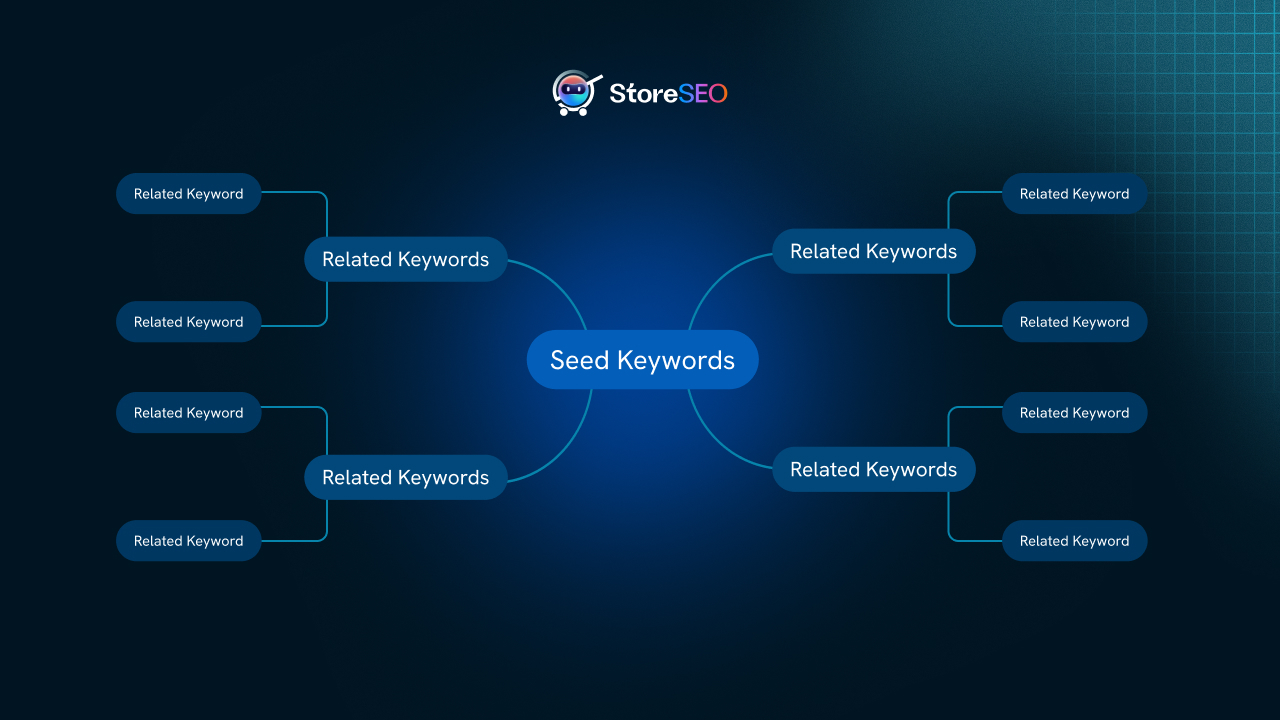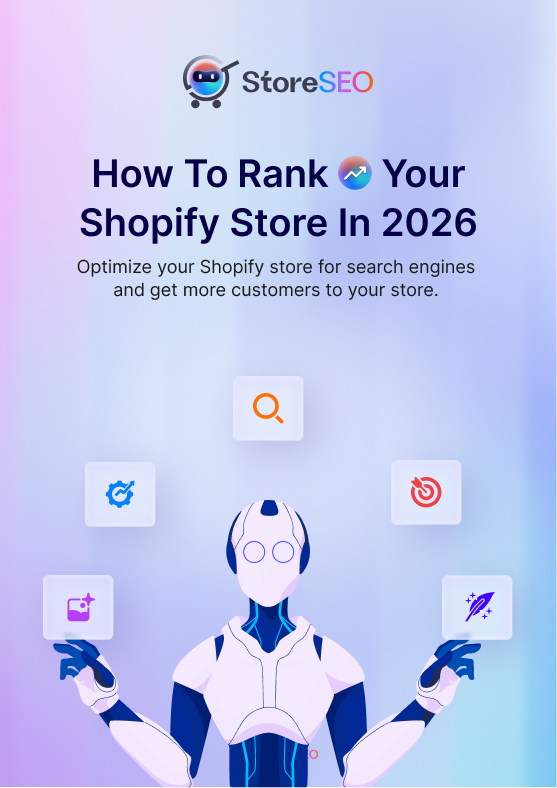Implementing keywords in your content is one of the most effective ways to boost SEO and increase the search engine visibility of your website or eCommerce store. But did you know that you have several SEO keyword types? Based on your keyword research and business goals, not every type will be the right one for you. So in this informative blog, we will describe the major keyword types and show you how to identify and use them.
![[2026] A Quick Guide to SEO Keyword Types 1 [2024] A Quick Guide to SEO Keyword Types](https://storeseo.com/wp-content/uploads/2024/09/1-StoreSEO-blog-Guide-to-SEO-Keyword-Types.jpg)
After reading our blog, you will have a much better understanding of how different keywords work. We will also show you how to select the right keywords according to your goals. So, let us get started!
What Are Keyword Types? How to Identify Keywords?
Keywords or key phrases are a collection of words that help improve SEO when placed in the content as mentioned in the introduction. Depending on various factors such as keyword length, search intent, mention of any brand, and more, you will come across numerous types. Now, the keywords for a sports news website will not be suitable for an eCommerce store that sells sneakers.
Why is that? This is because both have different target audiences, content topics, and visitor search intent. The main SEO goal when running a sports news website is to inform potential visitors about the latest sports trends and news. On the other hand, an eCommerce store owner who sells shoes aims to have better visibility among potential customers and increase sales.
![[2026] A Quick Guide to SEO Keyword Types 2 What Are Keyword Types? How to Identify Keywords?](https://storeseo.com/wp-content/uploads/2024/09/2-StoreSEO-blog-Guide-to-SEO-Keyword-Types.png)
Therefore, in order to identify keywords for your eCommerce store or website, you need to consider many factors including:
- Find out the specific target market or audience for your niche
- Study competitors in your niche and how they are using keywords
- Conduct keyword research according to your content, products, and services
- Evaluate the performance of your previously used keywords
This is a general guideline for identifying the right keywords for your website. However, you still need to have a clear concept of different keyword types which we will discuss next.
A Quick Breakdown of SEO Keyword Types
Time to explore the major keyword types used in SEO. We will discuss the main features of every type, provide examples and show you how to find them.
1. Keyword Types Based on Length
First, we can classify keywords based on their length. Generally, shorter keywords have more search volume and cover broader topics. In comparison, longer keywords typically have lower search volume and cover more specific topics or niches. Let us find out more about the three main types in this category.
Short Tail Keywords
Short tail keywords usually contain one or two words. These keywords tend to have a massive search volume and cover a very wide topic. For example, the keyword ‘leather shoes’ can refer to diverse leather shoe styles like loafers, Oxford shoes, monk shoes, and many more. As a result, it has a very high search volume as shown in the image below.
![[2026] A Quick Guide to SEO Keyword Types 3 Short Tail Keywords](https://storeseo.com/wp-content/uploads/2024/09/3-StoreSEO-blog-Guide-to-SEO-Keyword-Types.png)
Medium Tail Keywords
Next, we have medium tail keywords. These fall in somewhere between short tail and long tail keywords, which will be discussed later. These keywords have modest search volumes. Usually containing three words, they are longer and more specific compared to short tail keywords. For example, ‘synthetic leather shoes’ is a medium tail keyword. Medium tail keywords are the ideal option. This is something we will explain in more detail.
![[2026] A Quick Guide to SEO Keyword Types 4 Medium Tail Keywords](https://storeseo.com/wp-content/uploads/2024/09/4-StoreSEO-blog-Guide-to-SEO-Keyword-Types.png)
Long Tail Keywords
Long tail keyword contains more than three words. They are very specific to a particular niche. As a result, these keywords have the lowest search volumes. For those who want to focus on a specific niche, long tail keywords can be a good option. ‘Leather shoes water resistant’ is an example of a long tail keyword. It is often easier to achieve higher rankings with this keyword type.
![[2026] A Quick Guide to SEO Keyword Types 5 Long Tail Keywords](https://storeseo.com/wp-content/uploads/2024/09/5-StoreSEO-blog-Guide-to-SEO-Keyword-Types.png)
How to Find & Implement Keywords Based on Length?
Always remember that short tail keywords may have high search volume but ranking with these keywords can be very difficult due to high competition. On the other hand, it is comparatively easier to rank using long tail keywords. However, due to their low search volume, you will not get the desired online visibility through SEO by using long tail keywords.
This is why medium tail keywords are the suitable option to go for considering the modest amount of search volume they have. Besides, you do not have to worry about extremely high competition. So, prioritize medium tail keywords for better results.
2. Keywords Based on Search Intent
We can also classify keywords based on the search intent of online visitors or your potential customers. Let us take a better look at the 4 types of keywords according to search intent.
Informational Keywords
As the name suggests, informational keywords convey information that the searcher is looking for. These keywords answer ‘how’, ‘why’, and ‘what’ questions and are often used in blogs and guides related to the product, service, or niche. Visitors who are seeking knowledge or additional information search for these keywords. Keywords like ‘double monk shoe features’ and ‘shoe material’ are good examples of informational keywords.
Navigational Keywords
People search for navigational keywords when looking for a specific page or website or its physical location. For example, you have a Shopify store named ‘Ollivanders’. Now, customers will search for keywords like ‘Ollivanders shoe store blogs’ to find your store’s blog section. If they want to look up your store’s physical location, they will search for keywords such as ‘where is Ollivanders shoe store located?’. So, these are all navigational keywords.
Commercial Keywords
Commercial keywords are searched when potential customers want to compare the reviews, discounts, sales offers, and product features of different brands. So, keywords like ‘free shoe giveaway’ or ‘Ollivanders shoes vs Star shoes’ fit into this type.
Transactional Keywords
When online visitors have the search intent of making a purchase or taking an action, they search for transactional keywords. So, a shoe collector ready to buy shoes will search with keywords like ‘buy Oxford shoes online’ and ‘leather loafers for sale’. These are also known as buyer or money keywords.
How to Find & Implement Keywords Based on Search Intent?
We have already explained the key characteristics of various keyword types according to search intent. So, when looking for these keywords, make separate lists under the 4 types that we have mentioned. Note down other important metrics like search volume and keyword difficulty as well. Then, choose a set of keywords depending on your goals.
| Keyword Types Based on Search Intent | |||
| Informational | Navigational | Commercial | Transactional |
| Shoe the World day | Ollivanders shoe store blogs | Ollivanders shoes vs Star shoes | Buy Oxford shoes online |
| Chelsea boot material | Ollivanders shoe store YouTube channel | Free shoe giveaway | Formal shoe stores near me |
| Double monk shoe features | Where is Ollivanders shoe store located? | Ollivanders sneakers colors | Leather loafers for sale |
If you want to emphasize passing information to your visitors, prioritize informational keywords. If you want potential customers to take action on your site, focus on transactional keywords. If you want them to locate your store faster, prioritize navigational keywords. If you want to highlight your offers through offers, give more importance to commercial keywords. This is how you select and implement keywords according to search intent.
3. Keywords Based on the Mention of Brand
Including your brand name in the keyword is another way to classify keywords. We will now explore the keywords types based on the mention of brands.
Branded & Non Branded Keywords
When the keywords contain your brand name, it is a branded keyword. Suppose, you have an eCommerce store named ‘Advent Tech’. Now, the keywords that contain this brand name will be branded keywords. This helps you overcome competitors in your niche by highlighting your brand. In contrast, non branded keywords do not contain your brand name but have terms related to your product, service, or business.
Compound Keywords
When you combine branded keywords with money keywords, you get compound keywords. These keywords combine the benefits of branded keywords with commercial or transactional keywords. For example, ‘buy Advent Tech gadgets and accessories’ is a compound keyword. It combines a brand name with transactional terms.
How to Find & Implement Keywords Based on Your Brand’s Mention?
In order to effectively use branded keywords, you need to build a solid brand image first. Once you have a good business reputation, you can consider using keywords that contain your brand name. However, do not overuse it. Use non branded, compound, and other keywords whenever needed.
4. Other Keyword Types
Let us explore a few more types of keywords. You can use them in different cases along with the previous keyword types.
Trendy Keywords
Trendy keywords contain terms or phrases related to trends or fads at a specific time. For example, AI became a huge trend at the start of 2023. So keywords that contained ‘AI’ or ‘Artificial Intelligence’ were trendy in that period.
Question & Answer Keywords
Question & answer keywords that let you highlight commonly asked questions and their answers. Using these keywords will increase your chances of appearing on Google Search’s rich snippets and Google Assistant searches.
Local Keywords
Local keywords are specific to certain geographic locations. These keywords are commonly used in local SEO. Keywords like ‘chicken burgers near me in New York’ or ‘top shoe stores in Paris’ belong to this type.
Evergreen Keywords
Evergreen keywords are searched consistently throughout the year, regardless of the season or time. Keywords like ‘high top sneakers’ or ‘synthetic leather shoes’ usually have consistent search volumes at any time of the year. So, these keywords are evergreen keywords.
Seasonal Keywords
In comparison, seasonal keywords have more demand in particular seasons. For example, ‘winter leather jacket’ is a seasonal keyword. It has a higher search volume during fall or winter. During this time, potential customers are more likely to search for these keywords. But it has noticeably lower search volume during other seasons like summer or spring.
Broad, Phrase & Exact Match Keywords
These are also known as Google ads keyword match types. Broad match keywords address queries that relate to your selected keyword. For phrase match keywords, the queries include the meaning of your selected keyword. In the case of exact match keywords, the queries match the meaning of your selected keyword. Visit this guide to learn more about these keyword types.
Negative Keywords
Negative keywords are used to exclude search terms that you do not want to target in your campaign or keywords that your target customers do not search for. For example, if you are selling tablecloths, you may want to exclude terms like ‘wash cloths’ that do not relate to your products. Negative keywords are often employed in digital ad campaigns. Some common types of negative keywords are broad match, phrase match, and exact match negative keywords. Use these negative keyword types according to your business niche and campaign objectives.
Why Keyword Volatility Matters? Expert Tip to Address It
We have discussed several keyword metrics that help you select the best keywords for you. However, these metrics are not always constant. Due to search engine updates, we often find that the ranking position of keywords fluctuates. Furthermore, industry changes and trends can impact metrics like search volume and CPC, which can drastically change over time. So, a keyword that was good a few months ago may not be the right one for you now.
Moreover, search intent may change with time. For example, before the popularization of AI tools, a beginner graphic designer would more often search for terms like ‘how to create a logo quickly from scratch’. Now, they are more likely to search for something like ‘how to design a logo with AI.’ This phenomenon is known as keyword volatility.
To effectively address keyword volatility and select effective keywords, you must analyze the volatility in your niche or industry. Remember that every niche or industry is unique. Also, analyze other SERP features like reviews, shopping results, featured snippets, etc. Make sure to adjust your keyword strategy accordingly and choose the right keyword types. Read our blog on SERP volatility for more information.
StoreSEO: The Ultimate Shopify SEO App for Keyword Research
StoreSEO is an all-in-one Shopify app that lets you optimize your Shopify products, collections, pages, and blog posts for SEO with ease. Add to that, you have additional handy features like comprehensive SEO scores, keyword analytics, detailed SEO reports & analytics, AI and image optimizer addons, and more. As shown in the image below, you can easily analyze any chosen keyword and get its important metrics with a single click on StoreSEO.
To do keyword research using StoreSEO, follow these steps:
- Install StoreSEO app on your Shopify store
- Navigate to the ‘Optimize SEO’ option in the left side panel
- Click on the ‘Fix Issue’ button for your desired product, collection, blog post, or page
- Hit the ‘Keyword Analytics’ button beside your focus keyword
- StoreSEO will give you detailed analytics for your keyword like search volume, CPC, paid difficulty, and related keywords
- Using these analytics, optimize your store by placing suitable focus keywords and increase your SEO scores
![[2026] A Quick Guide to SEO Keyword Types 6 StoreSEO: The Ultimate Shopify SEO App for Keyword Research](https://storeseo.com/wp-content/uploads/2024/09/6-StoreSEO-blog-Guide-to-SEO-Keyword-Types.gif)
Use StoreSEO to take your Shopify store’s SEO performance to the next level. Improve your store’s visibility on search engines without any hassle.
Transform Your SEO Performance with the Right Keywords
With so many keyword types out there, it is essential to select the right keywords for your business. Remember to adjust your keywords with different strategies over time. Experiment with different keyword types to find the best approach for your website or store.
Subscribe to our blogs to stay updated with the latest trends and news. All the best!
Frequently Asked Questions (FAQs) About SEO Keyword Types
We will now go through some common questions about keyword types in SEO. This section will answer many queries about this topic.
1. Do keywords work for paid advertising?
Yes. Whether you are running Google or Meta ads, keywords play a crucial role in paid advertising. Metrics like search volume, Cost Per Click (CPC), and paid difficulty are important factors to consider for keywords in paid ads. Ideally, you should choose keywords with decent search volumes along with affordable CPC and lower paid difficulty according to your campaign budget.
2. What are the most important metrics to consider when choosing a keyword?
Some of the most important metrics to consider when looking for keywords are search volume and keyword difficulty. If you are planning to run an ad campaign, evaluate additional metrics like CPC. Keep in mind that you also need to research keywords based on your target audience and geographical location.
3. Are money keywords and transactional keywords the same?
Yes. Money or transactional keywords refer to keywords that are searched with the intent of making a purchase or taking an action. These are also called buyer keywords. Keywords such as ‘mountain bikes for sale’ and ‘buy apple cider vinegar online’ fit into this type.
4. Is it better to use any tool for keyword research?
While it is possible to manually conduct keyword research, using a dedicated keyword research tool can save you time and effort. Moreover, reliable tools give you accurate metrics and results. So, you can definitely consider using keyword research tools like the one in StoreSEO to find suitable keywords quickly and efficiently.
5. What are the different keyword types according to search intent?
Based on search intent, there are mainly 4 types of keywords namely informational, navigational, commercial, and transactional keywords. Informational keywords are searched when looking for more information. Navigational keywords are searched to locate specific websites, pages or physical addresses.
Commercial keywords are searched to find product features, offers, product reviews, etc. Finally, transactional keywords are based on the search intent of buying something or taking an action. For more details and examples, read our dedicated section on keywords based on search intent in this blog.










